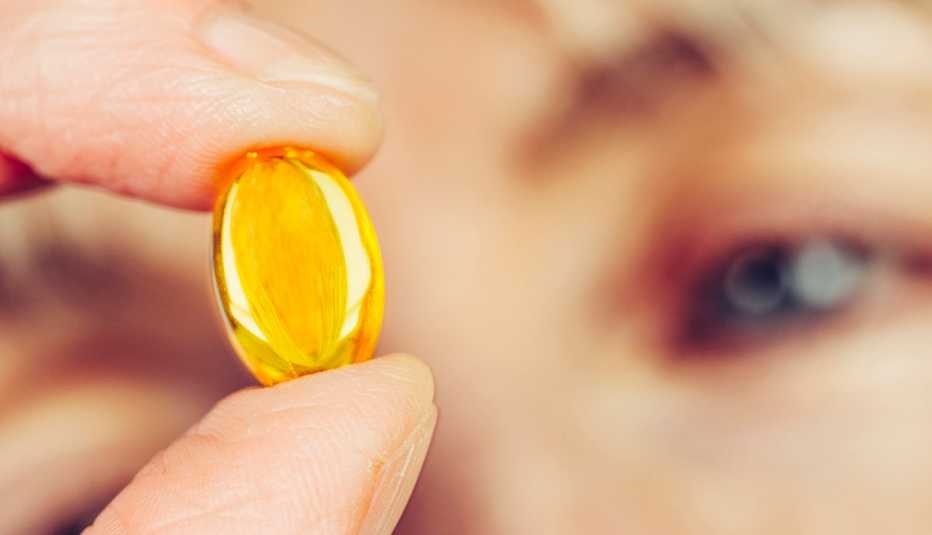AARP Hearing Center


When Mary Frey Eaton, of Baton Rouge, Louisiana, was in her 60s, an ophthalmologist suggested she take flaxseed oil and later added another supplement — PreserVision AREDS — to her daily regimen. Her daughter Susan Eaton says, “Mother lived to be 91 years old and was still reading the paper every day. The majority of her 90-year-old friends had developed macular degeneration and could no longer read.”
So do vitamins and other supplements really help, or did the elder Eaton just get lucky?
It's hard to know, says Frank Siringo, M.D., O.D., a retina surgeon at Omni Eye Specialists in Denver. “There are shelves full of supplements for various eye diseases,” he notes, “but the data is just not compelling [that it can help for conditions] other than dry eye and macular degeneration.”
Here's what you should know about supplements and those two conditions.
Macular degeneration
Common in people over 50, macular degeneration blurs or reduces vision in the center of your line of sight when part of the retina becomes thin over time. The condition can affect one eye at first and then both. And it can grow worse over time, leading to irreversible blindness. Early detection with regular eye exams and treatment can delay the loss of vision, though there's no cure for age-related macular degeneration (AMD). Your risk of developing it depends on age (it's most likely to occur after age 60), race (whites are more likely to get AMD than African Americans or Hispanics) and family history.



































































More on health
Zinc, Vitamin D and the Coronavirus: What Doctors Know So Far
Researchers are looking into the role vitamins and minerals play in prevention, treatmentNew Report Pans Supplements for Brain Health
AARP collaborative council finds little value — but lots of expense — in would-be memory boostersDo You Need a Vitamin D Supplement?
If you've been staying out of sun, you may not be getting enough of this key bone builder